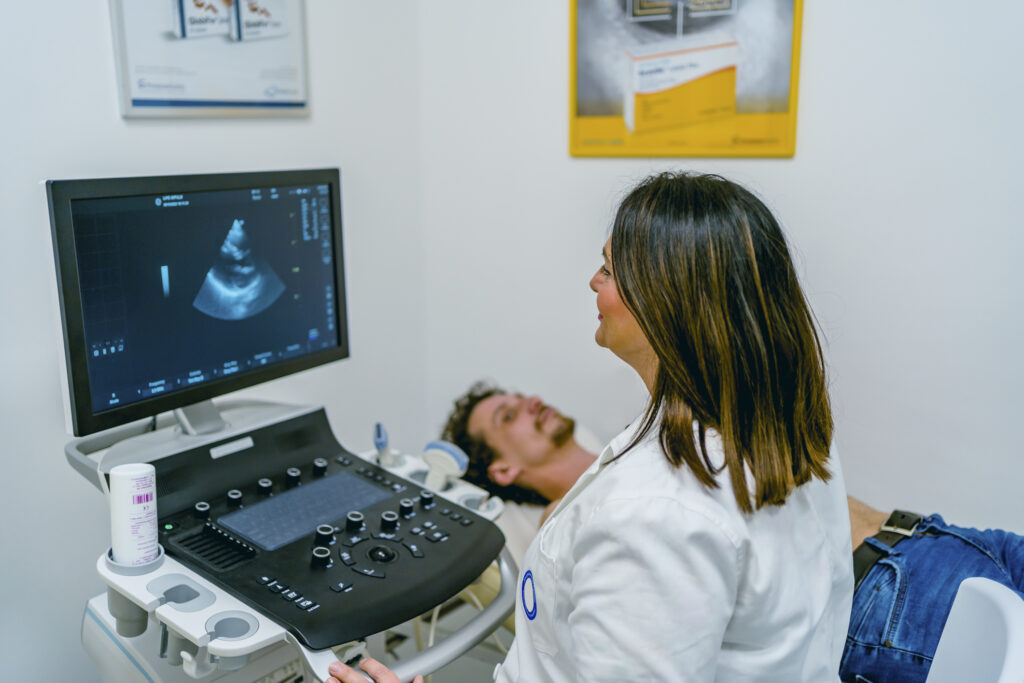In the ever-evolving field of cardiovascular medicine, innovations in diagnostic technology have played a pivotal role in saving lives and improving patient outcomes. One revolutionary advancement is the cardiology ultrasound. At Cardiovascular Institute of the South, we are committed to making cutting-edge cardiovascular care accessible to communities across Louisiana and Mississippi. Learn more about cardiology ultrasounds, the conditions they can detect, and why this detection is crucial for cardiovascular health.
What Is a Cardiology Ultrasound?
A cardiology ultrasound, or an echocardiogram, is a non-invasive imaging technique that utilizes high-frequency sound waves. These waves create detailed images of the heart and its surrounding structures. Specially trained technicians and cardiologists perform this painless and radiation-free procedure to evaluate various aspects of heart function, structure, and blood flow.
How Is an Echocardiogram Performed?
Electrodes (small adhesive patches) are placed on the patient’s chest to monitor the heart’s electrical activity during the test. An echocardiography technician—also known as a sonographer—then applies a special gel to the chest that enhances the transmission of sound waves and improves image quality. Next, the technician places a small handheld device called a transducer on various areas of the chest. The transducer emits high-frequency sound waves, which bounce off the heart’s structures and return as echoes. These echoes are detected by the transducer and converted into real-time images of the heart on a monitor.
The echocardiogram usually takes about 45 to 60 minutes to complete. Patients are encouraged to remain as still as possible to ensure the accuracy of the images. In some cases, the technician may ask patients to change positions or breathe in specific ways to get the best view of the heart. After the echocardiogram is complete, a cardiologist reviews the images and data to make a diagnosis. They may discuss the findings with the patient and recommend further tests or treatment if necessary.
Conditions Identified by a Cardiology Ultrasound
Ultrasounds are invaluable tools in diagnosing a wide range of cardiovascular conditions. These can include:
1. Heart Valve Abnormalities
Cardiology ultrasounds can detect issues with heart valves, such as stenosis (narrowing) or mitral or tricuspid regurgitation (leaking). These abnormalities can disrupt normal blood flow and lead to serious health problems if left untreated.
2. Congenital Heart Defects
In newborns, infants, and adults with congenital heart conditions, ultrasounds can reveal structural abnormalities present since birth. Early detection and intervention can significantly improve patient outcomes.
3. Cardiomyopathy
Cardiomyopathy refers to diseases of the heart muscle, which can lead to heart failure. Ultrasound imaging helps assess the size and function of the heart muscle, aiding in diagnosing and managing this condition.
4. Aortic Aneurysms and Dissections
Ultrasounds are essential for identifying abnormalities in the aorta, such as aneurysms (weakened and bulging areas) and dissections (tears in the aortic wall). Early detection is critical to prevent life-threatening complications.
5. Pericardial Disease
A cardiology ultrasound can detect conditions affecting the pericardium, the thin sac around the heart. These conditions include pericarditis (inflammation) and effusion (fluid accumulation), which can impact heart function.
6. Blood Clots and Tumors
In some cases, ultrasounds can identify blood clots within the heart or tumors that may be affecting cardiac function.
Take Control of Your Heart Health Today
Investing in your heart health today with early detection and proactive management can lead to a healthier, happier tomorrow. Prompt intervention and treatment are crucial for preventing severe complications and even heart failure. This can lead to improved quality of life, reduced hospitalizations, and a longer life expectancy for patients with cardiovascular conditions.
If you have a history of heart disease or any concerns about your heart health, don’t hesitate to reach out to your closest Cardiovascular Institute of the South location. You can also conveniently request an appointment online. Our dedicated team of cardiologists and advanced diagnostic services, including cardiology ultrasounds, can help you pave the way to better heart health.
